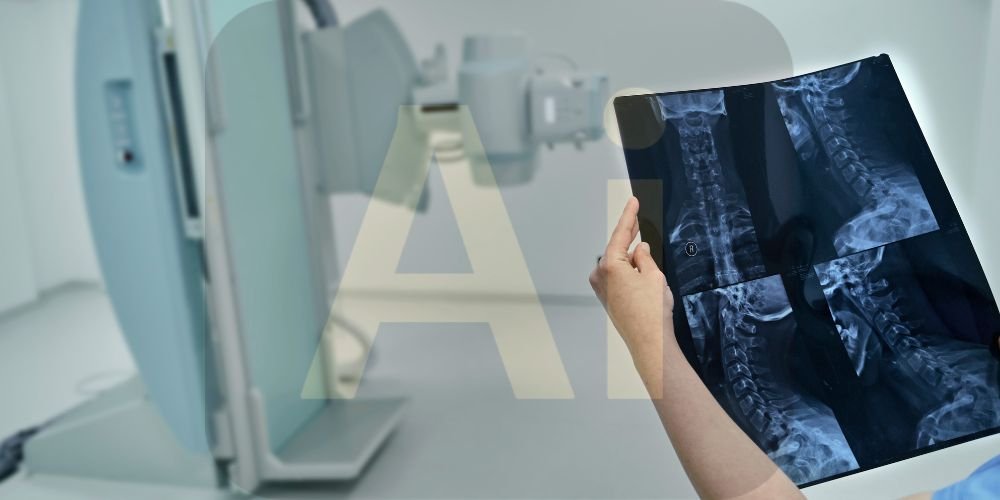In the dynamic landscape of healthcare, integrating Artificial Intelligence (AI) into medical imaging has emerged as a groundbreaking development. This article explores the significance of Medical Imaging AI, its evolution, applications, and its transformative potential for the future of diagnostics and patient care.
Significance of Medical Imaging AI
Medical Imaging AI represents a paradigm shift in diagnostics, enhancing the accuracy, efficiency, and speed of medical image interpretation. By leveraging machine learning algorithms and deep neural networks, AI systems can analyze complex medical images with precision and consistency that was previously unattainable.
Enhanced Diagnostic Accuracy
One of the key contributions of Medical Imaging AI is its ability to enhance diagnostic accuracy. AI algorithms can analyze medical images, such as X-rays, CT scans, and MRIs, with a meticulous eye, identifying subtle patterns, anomalies, and early signs of diseases that may be challenging for human eyes to detect.
Expedited Image Interpretation
AI-powered medical imaging expedites image interpretation, providing rapid results crucial for timely healthcare decision-making. This acceleration is vital in emergencies, where quick and accurate diagnostics can significantly impact patient outcomes.
Personalized Treatment Plans
Medical Imaging AI contributes to developing personalized treatment plans by providing detailed insights into a patient’s condition. The precise analysis of medical images helps healthcare professionals tailor treatment strategies, ensuring that interventions are aligned with each patient’s individual characteristics.
Evolution of Medical Imaging AI
Advancements in machine learning, increased computing power, and a growing repository of medical image data for training AI algorithms have driven the evolution of medical imaging AI.
Machine Learning and Deep Learning
Integrating machine learning and deep learning techniques has played a pivotal role in the evolution of Medical Imaging AI. These approaches allow AI systems to learn and adapt from large datasets, improving their ability to recognize medical image patterns, abnormalities, and nuances.
Training on Diverse Datasets
AI algorithms are trained on diverse datasets comprising various medical images. This diversity ensures that the algorithms can generalize their learning across different patient populations, medical conditions, and imaging modalities, enhancing their robustness and applicability.
Continuous Learning and Iterative Improvement
Medical Imaging AI systems are designed for continuous learning, allowing them to adapt and develop over time. As new medical image data becomes available, AI algorithms can undergo iterative training to refine their capabilities and stay abreast of evolving medical knowledge.
Applications of Medical Imaging AI
Medical Imaging AI finds diverse applications across various imaging modalities, revolutionizing the interpretation of radiological studies and contributing to more effective healthcare delivery.
Computer-Aided Diagnosis (CAD)
Medical Imaging AI is a powerful tool for Computer-Aided Diagnosis (CAD), assisting radiologists in interpreting medical images. AI algorithms can highlight potential abnormalities, enabling radiologists to focus their expertise on areas requiring further evaluation.
Early Detection of Diseases
AI-powered medical imaging facilitates the early detection of diseases by identifying subtle changes in medical images that may precede clinical symptoms. This early detection can lead to timely interventions, improving treatment outcomes and potentially saving lives.
Image Segmentation and Quantification
Medical Imaging AI excels in image segmentation and quantification, allowing for precise delineation of anatomical structures and measurement of quantitative parameters. This capability is valuable for assessing disease progression and treatment response in cardiology, oncology, and neurology.
Integration with Radiomics and Genomics
Integrating Medical Imaging AI with radiomics and genomics further enhances its capabilities. By combining imaging data with information about genetic and molecular characteristics, AI systems can provide a more comprehensive understanding of diseases, guiding personalized treatment approaches.
Transformative Potential for Healthcare
The transformative potential of Medical Imaging AI extends beyond diagnostics, influencing healthcare delivery, resource optimization, and patient outcomes.
Streamlining Workflows and Resource Allocation
AI-powered medical imaging streamlines radiological workflows by automating routine tasks and flagging potential areas of concern. This efficiency allows healthcare professionals to allocate their time and expertise more strategically, improving overall resource utilization.
Facilitating Telemedicine and Remote Consultations
Medical Imaging AI contributes to the growth of telemedicine by enabling remote image interpretation and consultations. Healthcare professionals can leverage AI insights to provide remote diagnostic services, expanding access to expertise and enhancing collaboration across geographic boundaries.
Advancing Precision Medicine
Medical Imaging AI is pivotal in advancing precision medicine by providing detailed phenotypic information from medical images. This information contributes to a more nuanced understanding of individual patient profiles, supporting the development of targeted and personalized treatment strategies.
Challenges and Considerations
While medical imaging AI holds immense promise, some challenges and concerns must be addressed to ensure its widespread adoption and ethical use.
Data Privacy and Security
AI in medical imaging requires handling large volumes of sensitive patient data. Ensuring robust data privacy and safety measures is important to maintaining patient confidentiality and complying with healthcare regulations.
Interpretability and Explainability
AI algorithms, particularly deep learning models, can sometimes operate as “black boxes,” making interpreting their decision-making processes challenging. Enhancing the interpretability and explainability of AI outputs is essential for gaining the trust of healthcare professionals and patients.
Integration with Clinical Workflows
Effective integration of Medical Imaging AI into clinical workflows is essential for its adoption. Ensuring seamless collaboration between AI systems and healthcare professionals without disrupting established routines is crucial for maximizing the benefits of AI technology.
Conclusion
Medical Imaging AI is at the forefront of healthcare innovation, reshaping diagnostics and patient care. Its ability to enhance diagnostic accuracy, expedite image interpretation, and contribute to personalized treatment plans marks a transformative shift in how healthcare professionals approach medical imaging. As technology advances and ethical considerations are addressed, the future of Medical Imaging AI holds immense promise for improving healthcare outcomes, driving precision medicine, and improving the overall quality of patient care.





